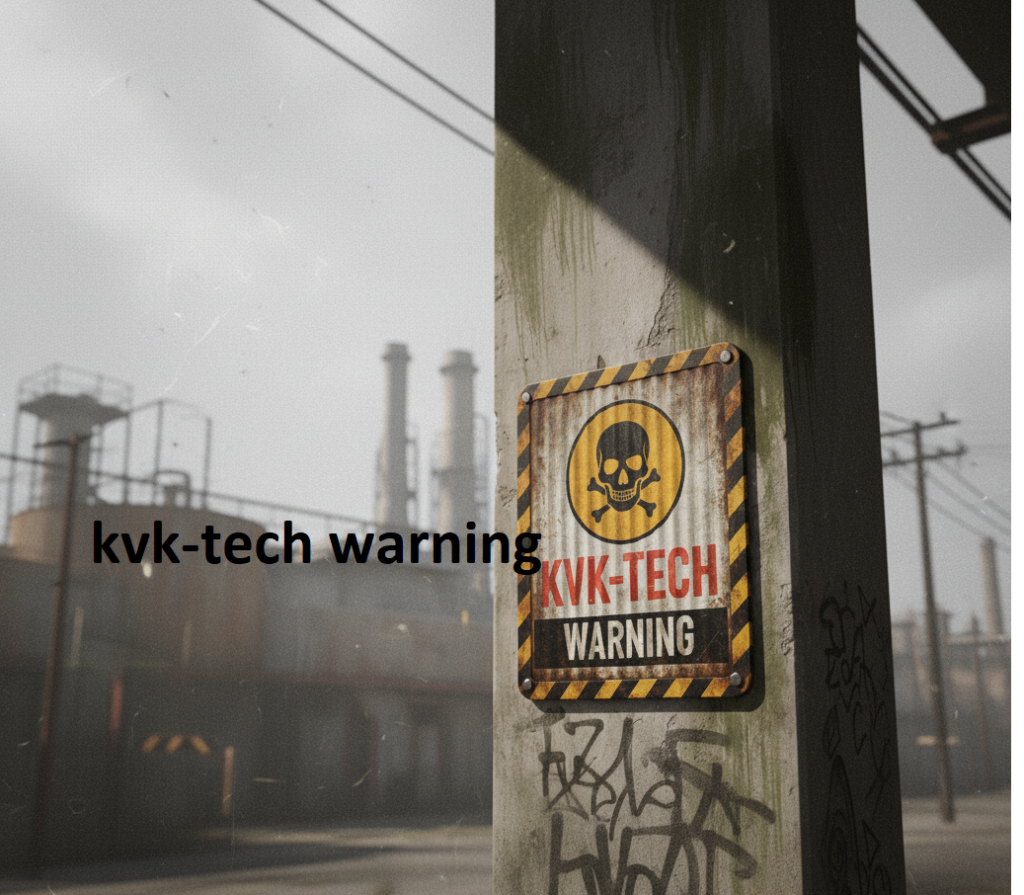When a pharmaceutical company receives a KVK-Tech warning letter, it’s not just a piece of paper—it’s a serious signal from the U.S. Food and Drug Administration (FDA). For people working in healthcare, patients relying on medications, or anyone curious about how drug safety is regulated, this kind of development raises important questions.
Let’s walk through what a warning letter really is, why the KVK-Tech case has drawn attention, and what lessons the industry (and the public) can take from it.
What Is a Warning Letter?
Before diving into the specifics of the KVK-Tech warning letter, it helps to understand the broader picture.
FDA Oversight
The FDA is tasked with making sure medications are safe, effective, and manufactured under strict standards. If a company falls short, the agency can issue a warning letter. This isn’t just a friendly reminder—it’s a formal notification that violations have been observed during inspections.
Why Warning Letters Matter
-
They highlight serious compliance issues.
-
They can lead to product recalls if not addressed.
-
They affect trust between the company, doctors, and patients.
For pharmaceutical businesses, a warning letter is both a reputational and financial risk.
The Background of KVK-Tech
Who Is KVK-Tech?
KVK-Tech is a U.S.-based pharmaceutical manufacturer known for producing generic drugs. Generic drugs play an important role in making medicine more affordable and accessible.
Why the Spotlight?
The caught attention because the company operates in a highly regulated space. When a generic drug manufacturer receives an FDA warning, it raises concerns about quality, reliability, and patient safety.
What Triggered the KVK-Tech Warning Letter?
While the specific details can vary, FDA warning letters often point to recurring themes:
Manufacturing Practices
The FDA frequently identifies problems such as inadequate quality control, contamination risks, or incomplete documentation. If manufacturing facilities don’t meet “current good manufacturing practice” (CGMP) standards, it compromises trust.
Documentation Issues
Pharmaceutical companies must keep meticulous records. Missing data or incomplete logs can signal deeper issues in how drugs are produced or tested.
Testing and Quality Assurance
Sometimes the concern lies in how drugs are tested before reaching patients. If testing isn’t consistent, safe dosages can’t be guaranteed.
They likely combined several of these red flags, leading the FDA to take formal action.
What Happens After a Warning Letter?
Company Response
A company that receives a warning letter is required to respond quickly, often within 15 working days. The response must outline how it will fix the violations and prevent them from happening again.
Corrective Actions
That could mean retraining staff, upgrading facilities, improving record-keeping, or even halting production until issues are resolved.
FDA Follow-Up
The FDA doesn’t just take a company’s word for it. Inspectors often return to ensure changes are actually being implemented.
In the case of the road ahead involves proving to regulators—and the public—that corrective actions are more than promises.
The Broader Impact of the KVK-Tech Warning Letter
For Patients
The number one concern is safety. Patients want reassurance that the medicines they take meet the highest quality standards. Even the perception of risk can cause worry, especially when it comes to critical medications.
For Healthcare Providers
Doctors, pharmacists, and hospitals rely on trust. If they’re uncertain about the quality of a manufacturer’s drugs, they may hesitate to prescribe or stock them.
For the Pharmaceutical Industry
When one company stumbles, it casts a shadow on the entire generic drug sector. The serves as a reminder that all players must uphold strict standards to maintain confidence.
Lessons for the Industry
1. Compliance Is Non-Negotiable
Cutting corners may save time or money in the short term, but it risks long-term damage that far outweighs the gains.
2. Transparency Builds Trust
When companies acknowledge mistakes and communicate openly about fixes, they can begin to rebuild credibility.
3. Continuous Improvement Matters
Regulations evolve, and so must quality systems. Investing in compliance isn’t a one-time project—it’s an ongoing commitment.
They highlights the dangers of neglecting any of these principles.
Could There Be Consequences Beyond the Letter?
Product Seizures or Recalls
If violations aren’t corrected, the FDA can seize products already on the market or force recalls.
Import Alerts
For companies that export, warning letters can trigger international scrutiny, limiting global sales.
Legal and Financial Repercussions
Extended non-compliance can even escalate into court actions or heavy fines.
For KVK-Tech, the pressure is on to act quickly and convincingly.
Looking Forward
The story of the KVK-Tech warning letter is still unfolding, but it offers a window into how regulatory oversight works in practice. Warning letters aren’t meant to shut companies down—they’re meant to protect patients while giving manufacturers a chance to fix problems.
If KVK-Tech responds effectively, it can turn a setback into an opportunity to demonstrate accountability. If not, the consequences could ripple across the industry.
At the end of the day, patients and healthcare providers deserve assurance that medicines are safe, consistent, and high quality. That’s why FDA oversight exists—and why cases like this one are worth paying attention to.
Final Thoughts
The KVK-Tech warning letter isn’t just about one company—it’s a reminder that trust in medicine depends on rigorous standards. Pharmaceutical firms must treat compliance as a cornerstone of their work, not an afterthought.
As consumers, we rarely think about the complex systems behind the pills in our cabinets. But when those systems falter, it becomes front-page news. The hope is that companies like KVK-Tech take these warnings seriously and commit to building stronger, safer processes.
In the bigger picture, every warning letter is both a cautionary tale and a chance for improvement. And for patients, that’s the kind of progress that truly matters.



